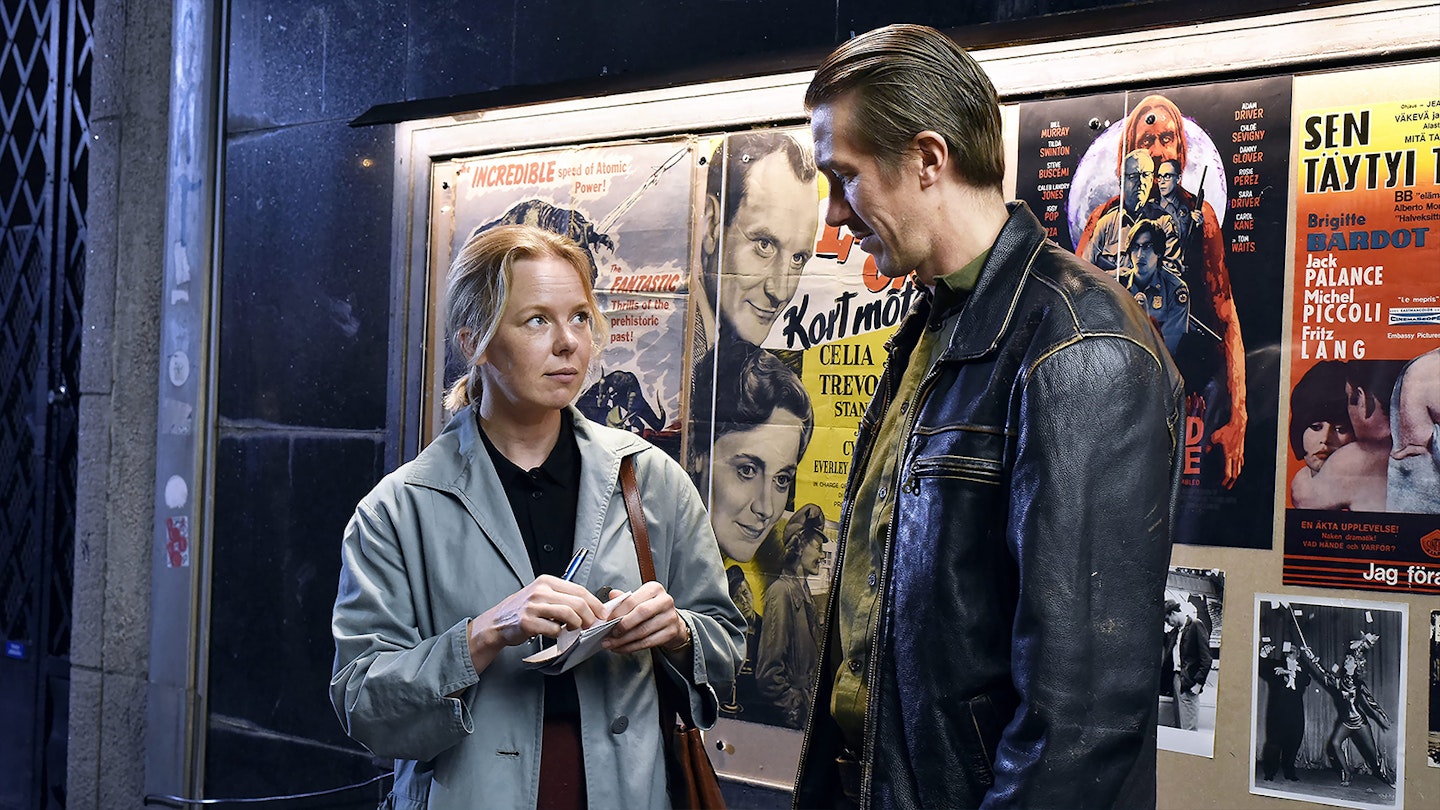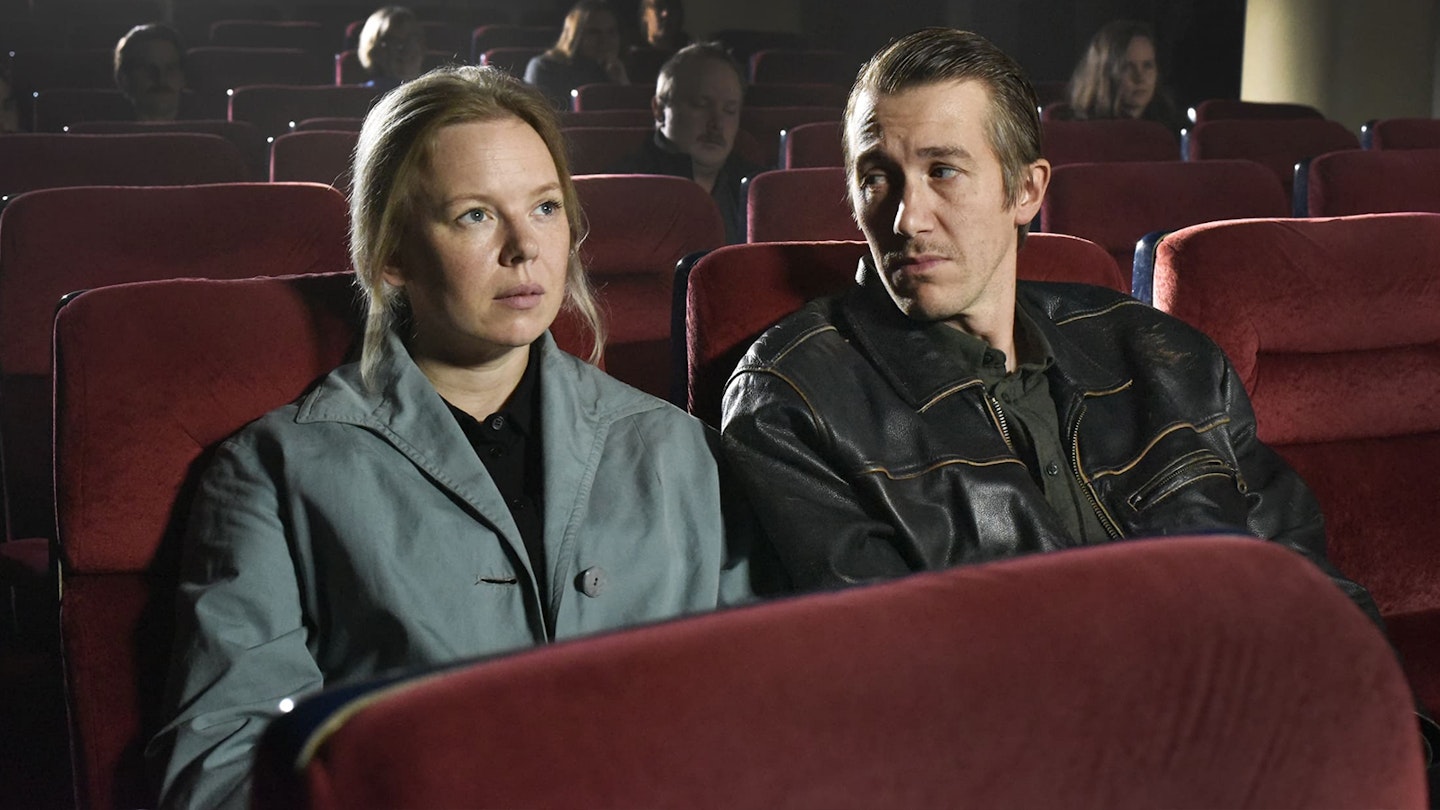In 2017, Finnish auteur Aki Kaurismäki announced that The Other Side Of Hope would be his final film. Six years later, the 66-year-old came to Cannes with Fallen Leaves, a film he claimed was a previously-believed-lost supplement to his ‘Proletariat Trilogy’, comprised of Shadows In Paradise (1986), Ariel (1988) and The Match Factory Girl (1990). (Fallen Leaves left Cannes with the Jury Prize.)

Were it not for some mobile phones, an Internet café, and incessant radio-news bulletins about the war in Ukraine, it would be easy to believe that this typically deadpan delight was filmed in the 1980s. Time does barely seem to pass in Kaurismäki's milieux, and lonely souls Ansa and Holappa are so preoccupied with dealing with daily drudgery that it's a wonder they notice each other in a side-street karaoke bar that caters for rock ’n’ roll and Schubert. Another hint of modernity arrives via the film they see on their first date, Jim Jarmusch's The Dead Don't Die (2019). But the posters at the arthouse venue are all for oldies by the likes of Yasujiro Ozu, Robert Bresson and Jean-Luc Godard, whose influence on Kaurismäki's oeuvre has always been readily evident.
Indeed, with cinematographer Timo Salminen again behind a largely static camera picking up wry details and arresting daubs of bold colour, the visuals are instantly recognisable. Underplaying to the point of parodic inertia, Alma Pöysti and Jussi Vatanen could also easily be mistaken for Kaurismäki stalwarts Kati Outinen and Matti Pellonpää, as their romance muddles through various vicissitudes towards an approximation of a happy ending.
If it wasn't such an unexpected pleasure to be back in Kaurismäki-land, it might be tempting to suggest we'd been here before. Everything looks and feels so familiar. But, at a time when films are stuffed with faddish innovation and superficial insight, pausing to watch ordinary people struggling with everyday human emotions is no bad thing.
